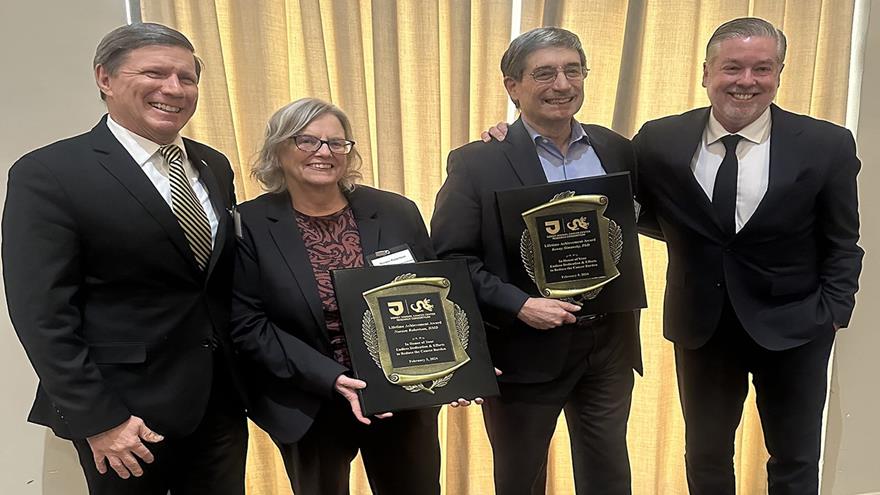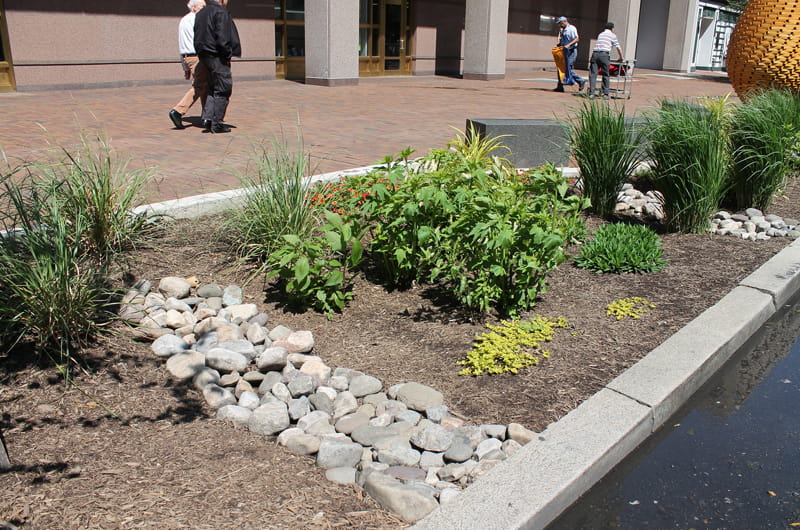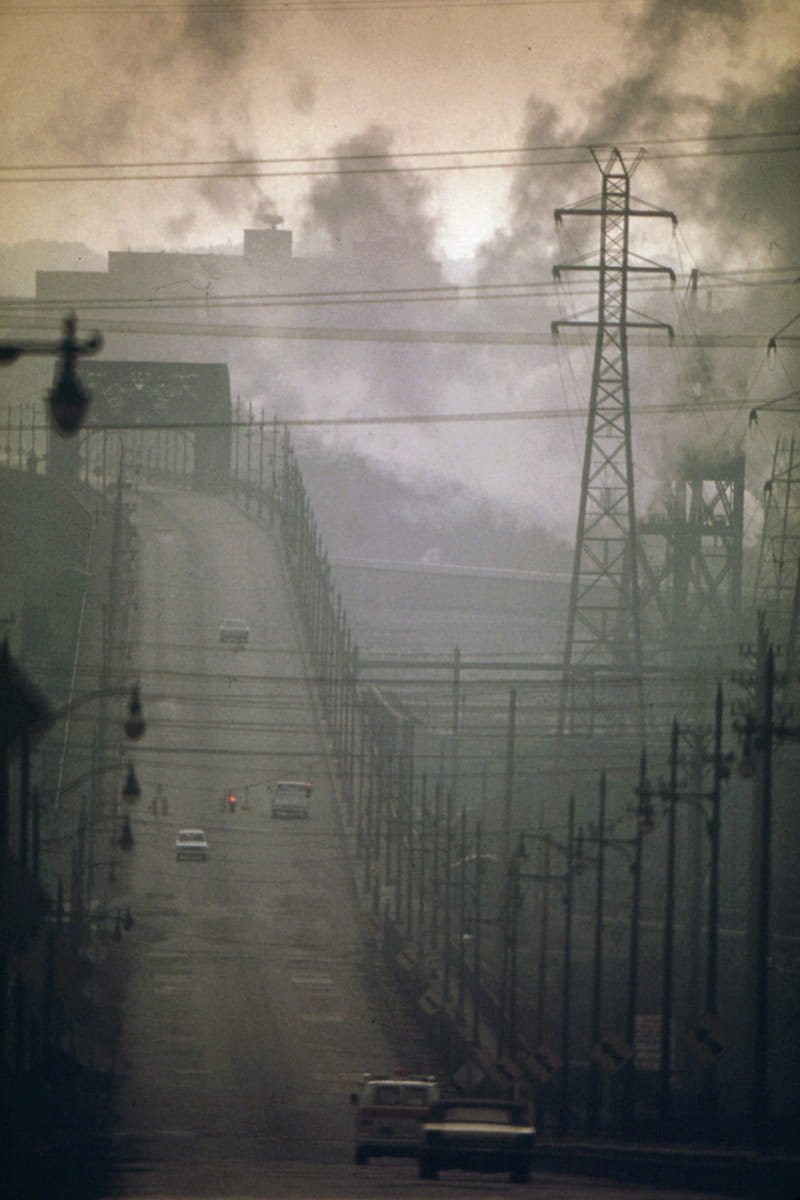Urban Climate Change Research Hub Opens at Drexel

- Bolstered by Research Consortium with Drexel, Jefferson’s Sidney Kimmel Cancer Center Earns NCI Comprehensive Cancer Center Designation
- Spring Campus Construction and Renewal Update — April 2024
- Alyssa Kemp Named as 2024 Truman Scholar
- No link between acetaminophen use during pregnancy and children's autism risk

Researchers at the hub will work closely with local government to apply their findings to climate change resiliency policies, such as those concerning storm water mitigation.
In the battle to adapt to and mitigate climate change caused by humans, most environmental engineers and climate scientists agree that cities are the front line. Due to the sheer density of their population, and the quantity of resources they consume, cities have the potential to most quickly and significantly affect—and be affected by—climate risks. They also have the ability to integrate climate resiliency into their plans for the future, according to environmental engineering professor Franco Montalto, PhD, who will direct a network of North American climate change researchers concerting their efforts via a new hub at Drexel University.
The hub, which will be part of a larger entity called the Urban Climate Change Research Network (UCCRN) that has churned out research and advised on urban climate policies around the world for nearly a decade, will now collaborate more closely with municipal governments across North America to procure research that will aid in the challenging decision-making process that surrounds climate change.
The creation of the North American Hub, along with a series of others around the world, represents a shift away from UCCRN’s previous activities, which involved publication of two editions of the Assessment Report on Climate Change and Cities (ARC3) report. Through the hubs, UCCRN will now focus its efforts on need-directed research and the exchange of knowledge between the researchers and city managers.
“We made the decision to transition to an organizational structure that allowed for more regular and more intimate interactions between the research community and urban decision makers,” Montalto said. “The North American Hub of UCCRN will feature a project exchange that can directly link students, faculty and other researchers to practitioners working in city government. This exchange will enable students and faculty to partner with city leaders on applied research that is also policy-relevant.”
The Drexel-based North American Hub will draw from the expertise of more than 100 scientists, engineers and planners from across the continent, including 46 Drexel faculty members who will join the UCCRN team.

“Drexel has worked with cities in the region on mitigation efforts, such as developing a greenhouse gas reduction strategy with the City of Philadelphia; and on adaptation efforts, such as identifying urban landscape features that protected against property damage in New York City during Hurricane Sandy,” said Patrick Gurian, PhD, an assistant professor in the College of Engineering, whose work on greenhouse gas reduction and environmental sustainability policy could be enhanced by the collaborations made possible through UCCRN. “The hub represents an opportunity to strengthen these efforts by involving a broader set of academics and cities in the research.”
By splitting the 750-member group in to smaller units, UCCRN can address, in greater depth, a number of climate vulnerabilities with a focus on those most pressing within regions. Montalto expects that the North American Hub will look closely at critical issues associated with the water, energy, air, heat, health and policy implications of climate change.
“Cities, coastal and inland, and in a wide range of geographic locations, demand an iterative and continuous state-of-the-knowledge assessment process to ground their unique climate change risks and responses to adaptation and mitigation in science-based policymaking,” according to the group’s mission statement.
Montalto will formally introduce the hub, which is supported by the A.J. Drexel Institute for Energy and the Environment, Drexel’s Office of International Programs, and its Center for Public Policy in the College of Arts and Sciences, at an event on Wednesday, Nov. 30 from 3:30 to 5:30 p.m. in the Bossone Research Center. He sees its effect on research at Drexel coming not only from the new opportunities for faculty collaboration, but also the possibility of creating a database of research projects for masters-level thesis work.
“It is clear to us that city planners will need to consider climate disaster management during the design of their built environment going forward,” Montalto said. “Giving them access to quality research and the people who have been considering these challenges for years—and that’s what we hope this hub will work to achieve.”
For more information about how to get involved with the hub contact Franco Montalto at fmontalto@coe.drexel.edu.
Drexel News is produced by
University Marketing and Communications.